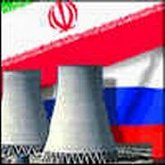Is Russia a lawyer or an inspector to Iran?
Russia can play a crucial role in resolving controversy over the Iranian nuclear program
Lately Iran has been in the spotlight of the international media. The Western countries, especially the United States, are getting increasingly annoyed over Iran's policy aimed at stepping up efforts for developing national nuclear program. Russia's stance on the issue should be taken into consideration for a better assessment of the situation and future developments. Over the last decade Russia has become a strategic partner of Iran. Russia can play a crucial role in resolving controversy over the Iranian nuclear program. 
During the Cold War era, in Shah's time, Iran was rather leaning toward the West despite the announcement of its non-alignment foreign policy. The authorities feared, and with reason, for the spread of communist ideology among the poorest strata of the population. Following the Islamic revolution in 1979, the relations between Tehran and Moscow did not improve.
The relations began to change for the better at the end of the 1980s. There were two main reasons behind the changes. First, the Islamic world's indignation about the Soviet policy started to ebb after the Soviet troops pulled out from Afghanistan. Second, Iran's armed forces were in need of modernization after an 8-year war with Iraq.
Initially, cooperation between our country and Islamic Republic of Iran was military and technical. Later on cooperation expanded to fuel and energy complex, transport system, machine building, bilateral trade of consumer goods.
Cooperation survived all the ordeals of the 1990s. Following the collapse of the USSR, the Iranian regime of Islamic theocracy did not try to undermine Russia's authority by supporting Islamic fundamentalism in the former Soviet republics. Tehran has maintained a largely pro-Moscow stance on the conflict in Chechnya. On the other side, Russia quite succeeded in withstanding the pressure mounted by the West, especially by the U.S., despite the obvious weakness of the political system and economy due to painful reforms at first half of the 1990s. Cooperation between Russia and Iran kept running, it even became stronger.
However, it is worthy of note that the Americans successfully got the Kremlin to sign a secret agreement in June 1995. The agreement specified a particular range of weapons Russia would supply to Iran until the end of 1999. Russia eventually backed out of the cumbersome deal in 2000.
The differences in the opinion on Russia-Iran cooperation became clear-cut in Russia and the West following U.S.-led war on terror. U.S. administration announced that Iran was a part of the “axis of evil.” Given the context of Russia-Iran relations, national interests of our country relate not only to the economy but to national security as well. At the end of the day, the case is also about Russia's standing at the international scene. Therefore it is very unlikely that our country is going to decrease cooperation even if the U.S. comes up with some attractive packages for the Russian economy.
Moreover, we had better bear in mind that Vladimir Putin has already showed his pragmatic attitude to politics. Let us assume that Iran would be one step away from the manufacturing a nuclear warhead that could be mounted on a missile already in place. Let us assume that the development would be accompanied by a sudden increase in aggressiveness of the Iranian foreign policy which might as well be part of a mischievous plot of the international terrorism.
Would Moscow play it cool and turn a blind eye on the Iranian nuclear program? The answer seems to be obvious.
In other words, cooperation between Russia and Iran will go on and become stronger in the foreseeable future. With its strong position in Iran, Russia will be able to play Iran's lawyer when the former deals with the international community. On the other hand, Moscow can also perform the duties of an unofficial inspector watching closely the developments in the Iranian nuclear program. Russia can do a better job than IAEA, EU, CIA, the Pentagon and the State Department collectively.
Subscribe to Pravda.Ru Telegram channel, Facebook, RSS!



